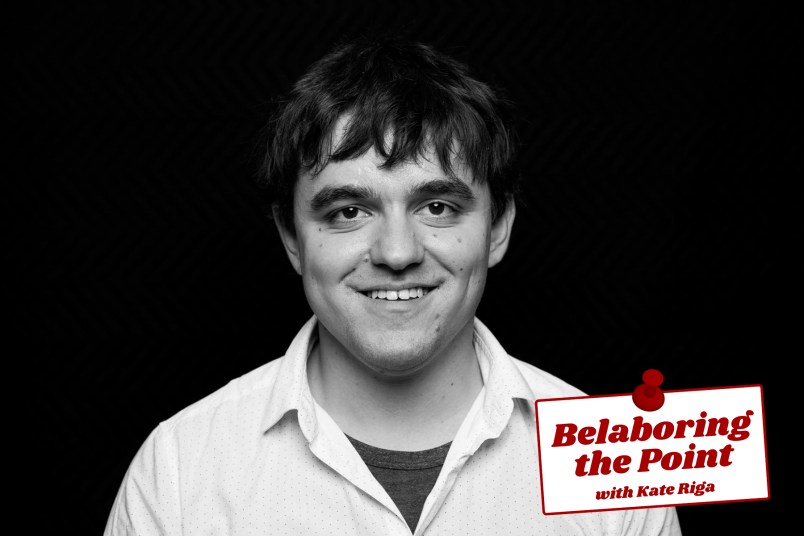[Jonathan Alter, author of the new book “The Center Holds: Obama and His Enemies”, is joining us as a guest blogger this week in the Editor’s Blog highlighting and discussing some key findings and revelations in his new book. — jmm]
DAY ONE:
In researching the book, I came to think that the 2012 campaign represented a peculiar role reversal. Barack Obama ran a corporate-style campaign that exploited the latest digital technology. Mitt Romney, the self-described “numbers guy,” ran a campaign based on a vague hope that Americans wanted change. Here’s part of how the Romney campaign rejected Big Data:
[Jonathan Alter, author of the new book “The Center Holds: Obama and His Enemies”, is joining us as a guest blogger this week in the Editor’s Blog highlighting and discussing some key findings and revelations in his new book. — jmm]
Jonathan Alter’s new book, “The Center Holds: Obama and His Enemies,” is being published June 4 by Simon and Schuster. http://www.jonathanalter.com/the-center-holds/ Each day this week, TPM will run a brief excerpt:
DAY ONE:
In researching the book, I came to think that the 2012 campaign represented a peculiar role reversal. Barack Obama ran a corporate-style campaign that exploited the latest digital technology. Mitt Romney, the self-described “numbers guy,” ran a campaign based on a vague hope that Americans wanted change. Here’s part of how the Romney campaign rejected Big Data:
“Chicago had been building digital capacity for six years, while Boston decided
it couldn’t afford it. In April 2011 Alex Gage, the founder of Target-
Point Consulting, a Republican opinion research firm that pioneered
the use of consumer data in politics, approached the Romney campaign.
Gage’s firm had begun using the term microtargeting in 2000.
(He later learned it was originated by the medical profession for laser
surgery.) He had compiled opinion research for Republican candidates
from Gerald Ford in 1976 to Romney in 2008, and after noticing Obama
job postings for data scientists, he saw what he called a “data arms
race” coming. So he went to Boston and pitched “Romney Abacus,”
which he described as a centralized voter contact database not unlike
what Chicago was building. The project would need to be located in
Salt Lake City, he said, because the data scientists in Boston and Silicon
Valley were almost all Democrats, an indication of the “geek gap”
(Democrats had many more of them) that harmed GOP recruitment of
brilliant techies.
“But that wasn’t the immediate problem. Gage, whose wife, Katie
Packer Gage, was Romney’s deputy campaign manager, knew the fate
of Romney Abacus when he saw the distracted Boston high command
diddling their smart phones during the meeting. They were like most
people, suspicious that the Big Data talk was mumbo jumbo. Stevens,
who monitored Twitter obsessively but didn’t tweet himself, liked to
remind people that the quants on Wall Street never saw the subprime
mortgage crisis coming. He and his colleagues were in no mood to
spend a couple million dollars experimenting with analytics. Romney
himself never even heard the presentation.
“The campaign had reason to be skeptical of the GOP consultants. It
was already paying an eye-popping $33 million to what was known as
the “FLS Mafia,” a reference to a company called FLS Connect (whose
partner, Rich Beeson, was Romney’s political director), and a sister
firm called TargetedVictory, cofounded by Zac Moffatt. The latter was
among nine Republican organizations on a single floor in a single office
building located at 66 Canal Center Plaza in Alexandria, Virginia, which
the conservative blogger Erick Erickson called the “locus of evil” in the
Republican Party. Erickson thought they were rip-off artists whose only
competence lay in fleecing candidates. Rove’s Crossroads Media and
Restore Our Future, the pro-Romney super PAC run by former Romney
aide Carl Forti, were on the floor, as well as outfits with names like
Digital Franking and Americans for Job Security. It wasn’t clear what
any of these consultants and super PACs did to actually help Romney
get elected. They spent a lot of time consulting lawyers to make sure
they violated no campaign finance laws when they ate lunch together.
Only much later did they realize that not only were they allowed to
coordinate, they should coordinate. But by then it was late in the game
and their clashing messages had already squandered millions. None of
these firms delivered anything resembling the media work in Chicago
of Jim Margolis and Larry Grisolano or the analytical work of the geeks
in the Cave.
“The closest to the latter was Alex Lundry, a data scientist on leave
from Alex Gage’s firm to help out in Boston. But the Romney campaign
was never data-driven. Lundry was like the lonely commander of
the Alamo watching Santa Anna’s vast army coming over the horizon.
Where Chicago had fifty-four geeks building and analyzing models,
Boston had four.”





